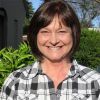Jewish Resource Specialists Receive Honors
Jodi Gladstone and Erin Burns have at least two things in common: they are both award winners for their work in innovative Jewish Early Childhood Education in the Bay Area, and they are both members of the groundbreaking Jewish Resource Specialist (JRS) program, a Federation program funded by the Jim Joseph Foundation and the San Francisco-based Jewish Community Federation and Endowment Fund.
Both of these incredible Jewish Early Childhood educators are in the most recent cohort of the JRS program, launched in 2011 by the Federation’s Early Childhood Education Initiative. The program has the dual goals of deepening Jewish learning at preschools and engaging the school families in Jewish life. In a time when young Jewish families are increasingly disconnected from Jewish life, this might seem like a tall order. But, in the 15 Bay Area schools that are a part of the JRS program, both teachers and families are enthusiastic about the work of the JRS and have seen a significant increase in family and teacher engagement as a result of the program.
This year, Jodi won the Helen Diller Family Award for Excellence in Jewish Education for her work in Jewish Early Childhood Education. The Helen Diller Award was established in 2001 at the Federation, and honors educators who have made extraordinary impact on the youth of our community. Categories include early childhood, day school, congregational/community school, and informal education (outside of a classroom).
And, at the same moment, Erin won the Grinspoon Award for Excellence in Jewish Education, which celebrates successful innovation in Jewish education. This award honors an early childhood teacher for creative teaching and nurturing of young Jewish children with an integrated curriculum and environment, employing developmentally appropriate methods.

award
It isn’t hard to see why these two educators were recognized by such distinguished awards – in Jodi’s school, Beth El Nursery School in Berkeley, the outdoors has emerged as a meaningful part of the classroom experience. Now serving as the JRS and outdoor classroom coordinator, Jodi notes that the creation of the outdoor classroom has been evolving over the past two years. Standing in the middle of the yard, you’d notice how engaged the children are. Some are in the bayit (house) preparing a “meal” from sand and dirt, making motzi before “eating.” Some of the children are reading books from PJ Library®; others are in the garden watering the herbs they will use for havdallah or in their challah. Jodi has reported that the parents have real ownership over the yard, as the families have been involved in setting up the space, including a display of mosaic tiles created by the families.
In her work as a JRS, Jodi meets with the classroom teachers of each class. They discuss what the children are interested in, and what holiday or Jewish value they are thinking about. Jodi noticed that the teachers are now able to make seamless Jewish connections for the children at the school. In one room recently, the teachers were talking about the period of the Omer. Jodi shared the midrash that when Moses received the 10 Commandments, the mountain on which he was standing bloomed. One classroom took that midrash to the children and, together, they created their own “mountain.” Velcro dots were added to hold the day of the Omer, and when the old number was removed and the current date was fastened, the old date was covered with a flower. This visual representation of the midrash made the story come alive for the children.

In Erin’s school, JCC Preschool in Tiburon, like many in the Bay Area, most of the teachers are not Jewish. Erin recognized the importance of articulating Jewish values in the program, but how can this be accomplished with teachers who are not Jewish? Erin has faced this issue with a grace that she extends to her classroom. As a JRS, she created what she calls a “quick guide,” consisting of a card with the appropriate bracha (blessing) for the celebration at hand. The guides, which are used for Shabbat, havdallah, holidays, and Jewish values, each give an explanation of the celebration on an adult level, so the teachers can build their capacity for learning. Songs, stories, games and how-to’s round out the guide.
From “How to make hamentaschen” to the rules and explanation for playing dreidel, Erin has worked hard to equip the teachers at her site with the knowledge they need to create a Jewish environment for the families and children in her care. When Erin presents the guide, she relays it in the context of “When you lead Shabbat or havdallah,” not “If.” In this way, there is never a question that they will naturally assume these tasks. Erin is available to any member of the staff who has questions, to role model, find answers, and support their growth as an educator in a Jewish school.
In her work with families, Erin sees that the parents crave a “home-school connection.” She cites an example of havdallah: most of the families did not have havdallah at home, so she held a family havdallah experience, complete with guides that each family could take home. Dinner was made, and a card explained about the havdallah candle, spice box, and Kiddush wine. Erin said, “Parents just want to be included; they want to bridge the gap of what happens at school and what happens at home. With the how-to guide, it makes it easier for them to try these experiences at home.”
Both Erin and Jodi talk about the amount of time and energy that the JRS work takes. However, both of them see that the connections they are making for the teachers, parents, and children at their schools are precious. The JRS program is proud of their work, and their honors are well deserved.
For more information about the JRS program, please contact Denise Moyes-Schnur, Senior Early Childhood Educator, at DeniseS@sfjcf.org or 415.499.1223 x8101.


